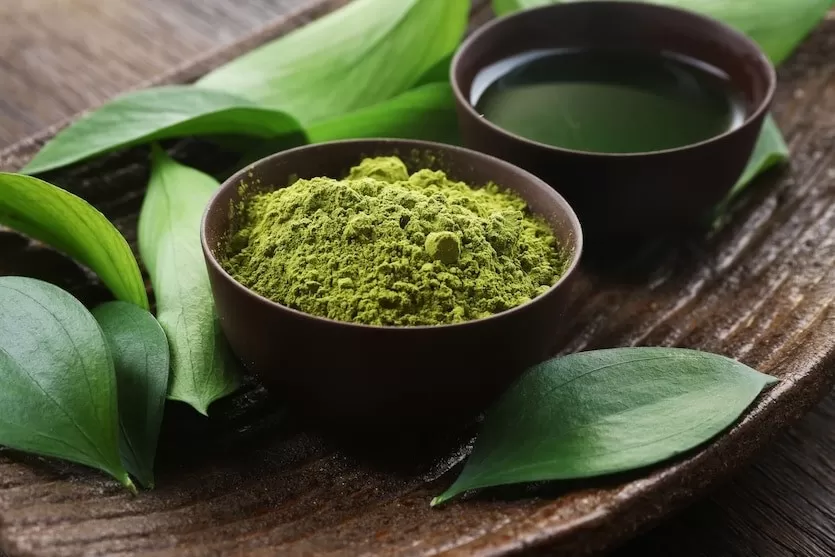- 0086-571-85302990
- sales@greenskybio.com
Green Tea: Nutritional information and how to buy
2025-05-20
For centuries, green tea (Camellia sinensis) has been respected in traditional Chinese and Japanese medicine as a potent healing solution. Modern scientific research now validates the long-held beliefs of ancient healers by confirming that green tea is rich in bioactive compounds capable of fighting cancer, reversing chronic diseases, and potentially extending lifespan. Unlike synthetic pharmaceuticals, which often carry harmful side effects, green tea provides natural protection against inflammation, oxidative stress, and neurological deterioration. However, the quality and purity of green tea vary significantly across brands, with many commercial products contaminated by toxins such as lead and fluoride. This report uncovers the medicinal compounds and their health benefits while providing guidance on sourcing pure, uncontaminated green tea.
Green Tea’s Nutrient Powerhouse
Green tea is abundant in bioactive compounds, but the most formidable include:
1. Epigallocatechin Gallate (EGCG)
EGCG is the most researched and influential catechin in green tea, responsible for 50-80% of its antioxidant activity. It is known for neutralizing free radicals, thus protecting cells from oxidative damage. EGCG has demonstrated numerous benefits:
- Cancer Combat: EGCG induces apoptosis in cancer cells without harming healthy cells, unlike chemotherapy. Studies show its potential in fighting various cancers, including breast, prostate, colon, and leukemia, by blocking critical growth pathways.
- Neuroprotection: EGCG helps break down beta-amyloid plaques associated with Alzheimer’s, supporting brain health and improving conditions like dementia.
- Weight Management: It boosts metabolism and fat oxidation, enhancing weight loss, especially when combined with exercise.
- Radiation Protection: EGCG mitigates chemotherapy and radiation damage by neutralizing harmful free radicals while allowing treatments to effectively target tumors.
EGCG applications are ideal for cancer prevention, weight loss, and heavy metal detoxification.
2. L-Theanine
L-theanine, a unique amino acid in tea, crosses the blood-brain barrier to stimulate alpha brain waves, promoting calm focus without sedation. Its benefits include:
- Anxiety Reduction: It increases GABA synthesis, modulating stress-related hormones.
- Cognitive Enhancement: Works synergistically with caffeine to boost memory, focus, and logical reasoning.
- Neuroprotection: Shields neurons from oxidative stress and excitotoxicity.
L-theanine is recommended for improving mental clarity, managing stress, and supporting conditions like ADHD.
3. Other Catechins and Polyphenols
Green tea is rich in catechins and polyphenols such as epicatechin, epicatechin gallate, and epigallocatechin, each offering specific health benefits:
- Cardiovascular Support: Reduces LDL oxidation and triglyceride levels, lowering heart disease risk.
- Insulin Sensitivity: Enhances glucose uptake, aiding in diabetes management.
- Longevity: Activates genes linked to longer lifespan through cellular repair processes.
These compounds work synergistically to combat inflammation and oxidative stress while promoting heart health.
4. Chlorophyll and Trace Minerals
Chlorophyll assists with heavy metal detoxification, while zinc, selenium, and manganese support enzyme functions crucial for immune health and antioxidant defenses.
The Hidden Dangers: Lead and Fluoride Contamination
Many commercial green teas, particularly those from China, face contamination from lead and fluoride, posing serious health risks:
- Lead Poisoning: Absorbed from polluted soils, lead accumulates in the body and affects cognitive development, especially in children.
- Fluoride Exposure: Excess fluoride can result in thyroid dysfunction and skeletal issues due to environmental contamination.
Sourcing Safe Green Tea
To enjoy the benefits of green tea without the risks, consumers should:
1. Opt for Japanese Green Tea: Matcha and Sencha are typically grown in environments with minimal heavy metal absorption.
2. Avoid Low-Quality Tea Bags: These often contain older leaves with higher fluoride levels; choose premium loose-leaf or bagged tea instead.
3. Verify Lab Testing: Select retailers that conduct rigorous third-party tests for contaminants.
4. Consider Alternatives: Herbal teas like tulsi, rooibos, or chaga offer similar antioxidant benefits without fluoride risks.
Conclusion:
Green tea is more than a soothing beverage; it’s a potent medicine. While it offers significant health advantages over synthetic drugs, consumers must be vigilant about quality. By choosing lab-verified, organic, and sustainably sourced tea, particularly Japanese varieties, individuals can fully harness green tea’s healing properties. Despite the medical industry’s emphasis on pharmaceuticals, green tea empowers individuals to enhance their wellness naturally. Stay informed, choose wisely, and embrace the healing potential offered by green tea.
-
Goldenseal: A Historic Herbal Remedy at Risk
2025-05-20















